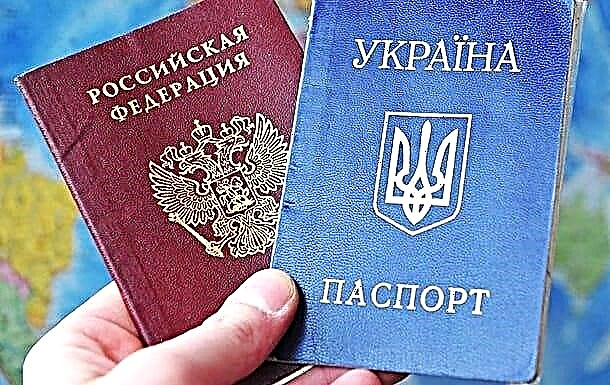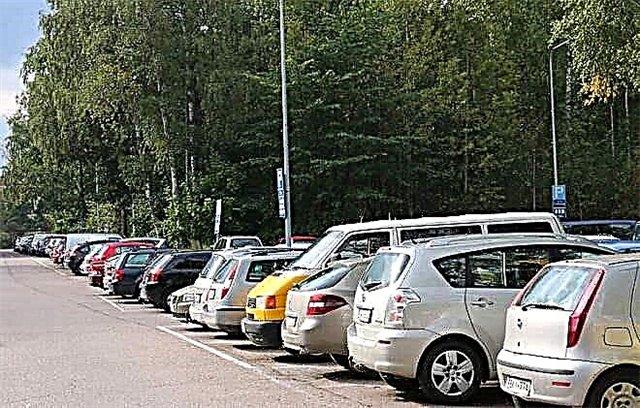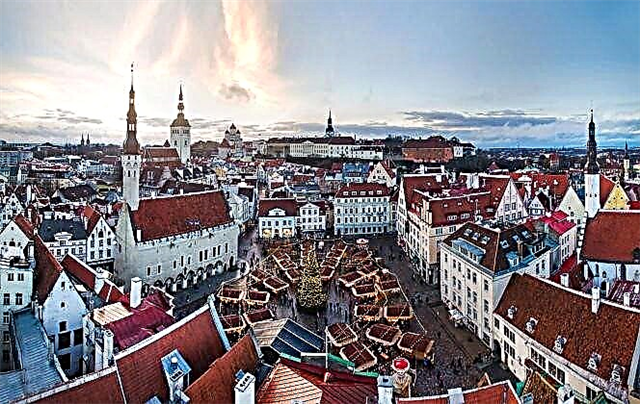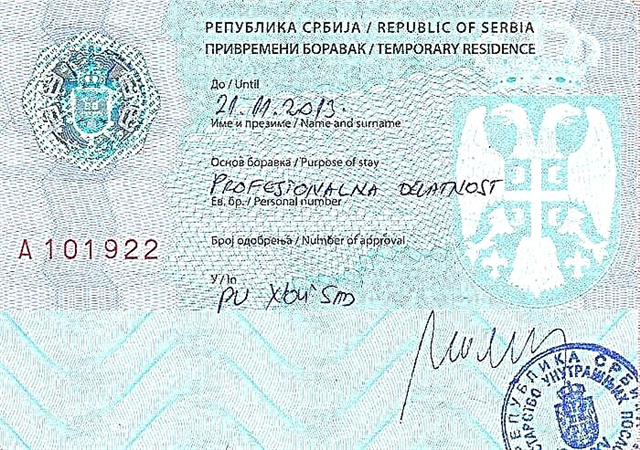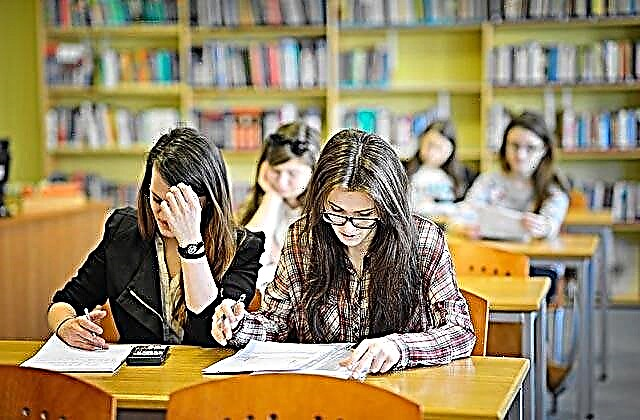The popularity of education in Poland is due to the high quality of education and excellent prospects in terms of further employment. The education system in Poland fully complies with European standards, the diplomas received by university graduates are valid in all countries of the European Union (EU), which significantly expands the possibilities of young specialists and increases their chances of getting a profitable and highly paid job.
Advantages of getting an education in Poland
Poland's accession to the EU was marked by significant transformations in all spheres of society, including education, which is now fully integrated into the Bologna system and meets the requirements of the ISCED international education classification standard.
The high quality of the educational process in Polish universities is ensured by:
- compulsory use of programs in two languages - Polish and English;
- compliance of the material and methodological base with European standards;
- highly qualified teaching staff.
In addition, getting an education in Poland has the following advantages:
- The cost of education, accommodation and meals in Poland is significantly lower than in other European countries.
- Students of Polish universities have the opportunity to earn extra money while studying. They are officially allowed to work 20 hours a week during the academic semester and full time during vacations.
- During training, young people are exempt from military service.
- Acquisition of practical skills - during the studies, an internship or practice in various Polish or foreign companies is possible.
- Parents can freely visit students several times a year on visitor visas.
Another small but pleasant plus of Polish universities is the availability of special services aimed at facilitating adaptation and helping foreign students.
Variety of forms of study at universities
In Polish universities, you can choose a suitable form of study: here there is both full-time and distance learning. Correspondence students attend classes on weekends, from morning to evening, 2 times a month. Some of the training material is given for self-study. Such training is paid both in private and municipal institutions.
In addition, Polish universities can also be visited in the evenings (evening form of study) or on an individual basis if there are good reasons (individual study).
Externship is possible - without visiting the university, with individual consultations with teachers and independent analysis of the material.
Completely distance learning (via the Internet) in Poland is offered by some universities, but in reality it turns out to be not entirely realistic. The student will still have to attend at least 40% of the classes in person. You will also need to appear for exams.
Preschool institutions in Poland
The preschool education system in Poland, as well as throughout Europe, offers parents a choice - to send their child to kindergarten or leave at home until the age of 5. Before school, you will still have to attend an educational institution in order to prepare the baby for school and instill in him initial social norms.
As for preschool institutions, there are nurseries for very young children (from 6 months) and kindergartens (from three years old). The latter can be both municipal and private. Such kindergartens differ in the number of children in groups, the cost of training and the possibility of visiting in the summer.
You can send your child to the garden for a full day or for half a day (up to 5 hours a day). A visit to the facility on a shorter schedule does not require payment.

Secondary and secondary specialized institutions
The number of Polish secondary educational institutions includes both primary schools from 1st to 6th grades, as well as secondary specialized educational institutions:
- gymnasiums (grades 7-9),
- lyceums (grades 10-12),
- technical schools (grades 10-13).
A foreign citizen can also enter any of the institutions, while it is understood that he will live on the basis of an educational institution without parents. Education in public secondary specialized institutions in Poland is free, admission is carried out without exams.
The Lyceum is a general Polish school in which classes are divided according to specialization. At the end of the lyceums, students take a special test - Matura, which shows the level of knowledge they have acquired in secondary school. After that, a European-style certificate is issued, which gives the right to enroll in any higher educational institution in Europe.
What are social schools
To quickly acquire a profession, acquire valuable practical knowledge and skills, combine study with work - all this is possible in Polish polish schools. Such a professional educational institution for adults for a couple of years of study prepares specialists in various fields - beauticians, technicians, pharmacists, hairdressers, assistants, florists and others. Training can be paid or free, as well as full-time, part-time or evening.
The diploma received at a Polish school gives students the opportunity to immediately get a job on the territory of the state or in any other EU country.
Possibility of admission to a Polish university
Higher education in Poland is available not only to Poles, but also to citizens of other countries, including Russia. All applicants have the same enrollment rights, regardless of their country of birth.
Entrance exams are taken upon admission to a state higher educational institution, private ones do not require this - it is enough to have a good basic education and successfully pass an interview.
After studying at a Polish university for 3-4 years, the student receives a licentiate diploma (Licencjat, BA) or an engineer (Inzyneir, BSc). Further education is also possible - most of the higher educational institutions in Poland have a master's degree. Upon completion, a master's degree (Magister, MA or MSc) is issued, with which you can teach at any European university, or continue your studies in graduate school.
You can enter a Polish university in both Polish and English. Moreover, education in English, although it is paid, provides an indisputable advantage - the opportunity in the future to freely communicate with business partners in their specialty.
Assessment of knowledge and control of student progress
The grading system in Polish universities is five-point, that is, 1 and 2 are unsatisfactory marks, and 5 is the highest mark. Unlike Russian higher educational institutions, Polish ones actively use "halves" of points: "4.5" - good with a plus, "3.5" - satisfactory with a plus.
Examinations at universities are mostly oral, less often written control of knowledge. If the exam is not passed the first time, 2 more retry attempts are allowed.
In the process of training, students prepare term papers and theses under the supervision of a supervisor. In a bachelor's program, a student can submit an abstract on a specific problem, while in a master's program it will be necessary to conduct an original research. The work is also graded on a 5-point scale.
In general, the assessment system in Polish educational institutions has undergone a significant reorganization since the country's accession to the European Union.First of all, teachers pay attention not to the mechanical reproduction of information by the student, but to the ability to think logically, to compare the knowledge gained in different disciplines, to generalize, compare, predict, and apply them in practice.
Education is aimed at the comprehensive development of the personality of students, their preparation for their further existence in a multinational and multicultural environment (the so-called multicultural education).
Obtaining scholarships and grants at universities in Poland
Studying at a Polish university, every student has the right to apply for scholarships and grants... To do this, you need to have high marks or work on a promising scientific topic. University students can look forward to one of the following scholarships:
- social - for members of low-income families;
- special - for young people with disabilities;
- the rector of the university - for success in scientific, sports or artistic activities (for 10% of students);
- Minister of Science and Higher Education of Poland - for outstanding achievements in science, sports, art (1000 scholarships per year).
In addition, for a student in a difficult situation, one-time financial assistance or allowance is expected.
To participate in grants, a student will need to choose a suitable program, write a motivation letter of application and collect the necessary package of documents.
After an interview with representatives of the foundation or organization financing the project, a specific decision will be made on the possibility of providing the student with funds.

Features of practice and internship
The acquisition of practical skills during study is one of the main goals of any European education. Therefore, internship and practice for students of Polish universities is an important component of the entire educational process. All universities in Poland have special agencies that provide assistance in finding work for graduates and internships for students.
An internship (practice) in Poland is not required, which differs from the usual university practice in the countries of the former CIS. Another feature is that trainees at Polish firms are paid a monthly salary. During their internships in leading European companies, students gain invaluable experience, apply the knowledge gained in practice, and practice in administrative work.
Opportunities for graduates of Polish universities
After graduating from a Polish university, the graduate has every chance of finding a job in Poland. Local companies willingly hire foreigners, the main thing is that the applicant's knowledge of Polish is at a high level. Studying in Poland gives the student the right to receive a Residence Card - a document that confirms the identity of the owner and his status in Poland. For a foreign citizen, the residence card (Karta pobytu) replaces the passport of a resident of the European Union and acts as a visa.
In Europe, specialists with a Polish diploma in the following industries are more likely to get a decent job:
- IT technologies,
- engineering,
- architecture.
As far as the Russian Federation is concerned, a Polish diploma here usually does not give the candidate any special advantages. An exception will be if the specialist studied at an English-speaking university - this can be a big plus for the employer.
Summary
In order for a Russian to receive a high-quality European education today, it is not at all necessary to go to countries with expensive living. Education in Poland - both school and secondary or higher - will cost much less, including food and accommodation for the student, and the quality of the diploma will not be inferior to the world famous universities in Europe. Upon graduation, the graduate will be fluent in at least two languages - Polish and English.
A residence card issued by a student will help to officially find a job in Poland and to travel and enter outside the country without any problems.
Using all the opportunities offered by higher Polish education - numerous internships, grants, scholarships - any student can achieve significant results in order to ensure a decent and comfortable life in the future.

